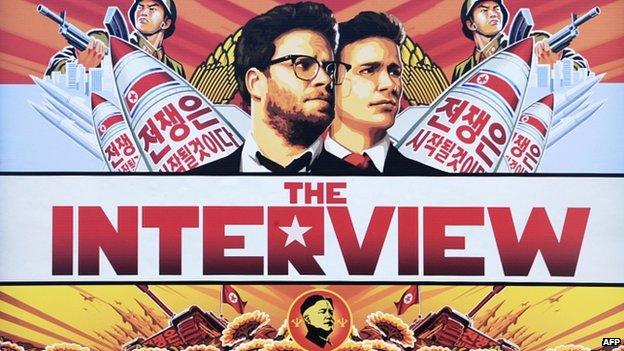Netflix enters race for Australia's on-demand audience
- Published
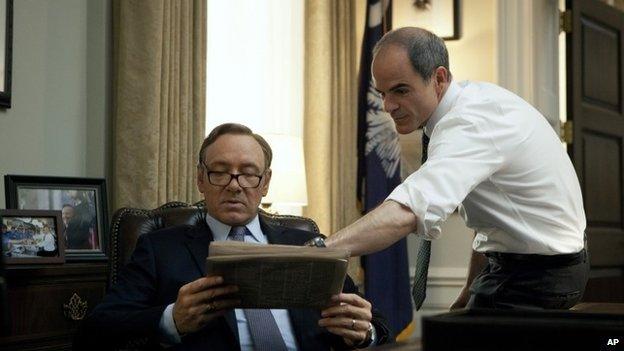
House of Cards, in which Kevin Spacey plays a corrupt US politician, is Netflix's hallmark programme
The world's most famous snowman and the betrayal of a president are part of the biggest shake-up in the way Australians watch television.
US streaming service Netflix will launch in Australia and New Zealand on 24 March, hoping to entice viewers with new series of hits House of Cards and Orange is the New Black, as well as the Disney super movie Frozen.
The Internet television network boasts more than 57 million members who have access to an insomniac's trove of more than two billion hours of shows and movies each month.
But the California-based video-on-demand provider will face stiff competition in the Australian streaming market from several incumbent players, including global media magnate Rupert Murdoch.
An even bigger challenge could be Australia's entrenched habit of illegally downloading digital content. Annoyed by the delay in release dates for new films and TV shows, and by the higher prices they face for digital content, many Australians have already found surreptitious ways to view their favourite shows.
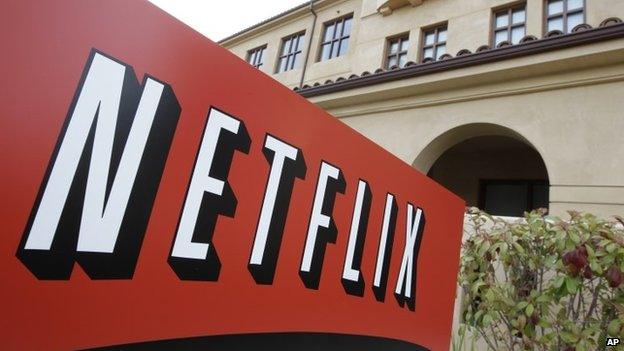
Netflix has its headquarters in Los Gatos, California
To further muddy the waters, Australian download limits on broadband and mobile accounts could curb local appetite for the flood of material now coming their way, say experts.
In the Australian market, Netflix will go head-to-head with Presto Entertainment, which is owned by local TV network Channel 7 and pay TV firm Foxtel, (itself a joint venture owned by Rupert Murdoch and Australia's dominant telecommunications player, Telstra).
Stan is another competitor. Launched in January, it is a partnership between media heavyweights TV network Channel 9 and the Fairfax newspaper group. Stan has secured exclusive rights to Better Call Saul, a spin-off from Breaking Bad, while Presto will show Game of Thrones.
Meanwhile, the trans-Tasman company Quickflix, which began more than a decade ago, has reinvented its disc rental operation into a streaming service.
On-demand feast
Netflix argues it has a unique blend of original content, local series and films, and popular movies and TV shows from around the world. Its service will be available on all major Australian broadband systems and be accessible on a range of devices, including smart TVs, smartphones, Xbox and tablets.
Australians and New Zealanders have been waiting for years for an all-you-can-eat on-demand feast partly because free-to-air and pay TV networks have controlled programmes made by major US studios, says Professor Nick Wailes, Associate Dean of Digital and Innovation at the University of New South Wales Business School.
"After almost a decade of nothing it is just exploding out of all recognition," he told the BBC. "Consumers will get more than they could possibly watch in a lifetime."
And Netflix has undercut its Australian competition on price. Prof Wailes believes the big loser in the country's online entertainment revolution will be Foxtel, which has already responded with aggressive price cuts of its own.
"This is going to dilute the viewers' eyes even more, which is going to undermine the value of their advertising," he warns. "If I was in TV I'd be worried."
Land of digital pirates
Netflix's expansion into the Pacific is part of a global push but academics have estimated that there are already 200,000 Australians using virtual private networks to pretend they are in America and download US content from Netflix. The question is will they leave the shadows and subscribe instead to the Australian model?
Australia is a land of digital pirates. Last year it headed the list for illegal downloads of the finale of Breaking Bad. Curbing that subversive appetite will be a challenge to all the streaming operators in a country where traditionally free-to-air networks have dominated, unlike in the United States where the popularity of subscription television has soared.
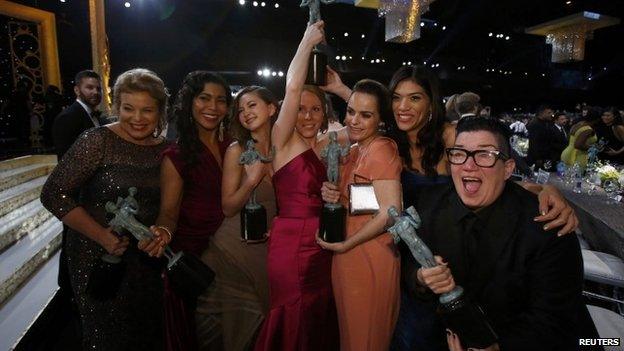
The cast of Netflix programme Orange is the New Black celebrate a Screen Actors Guild award
Then there is the issue of just how many programmes and films subscribers can watch before they exhaust their download limits on broadband or mobile accounts.
"The biggest challenge will be for people to understand the data demands of these services, that streaming movies and TV shows are really going to place a strain on data allowances," says Stephen Fenech, editor of technology blog techguide.com.au.
Some ISPs have promised unmetered viewing of Netflix, Mr Fenech adds.
"In terms of free-to-air TV obviously they are going to have to play to their strengths with unique programming and great live sport. I think that the competition will drive up standards in Australia," he says.
Australians will soon have at their fingertips more drama, comedies and films than they could ever hope to (sensibly) watch.
"I think I'll be doing a pretty solid House of Cards binge as soon as the service starts," says Mr Fenech.
- Published20 January 2015
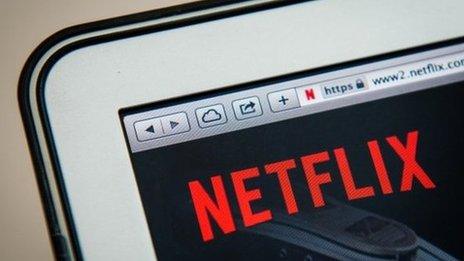
- Published9 February 2015
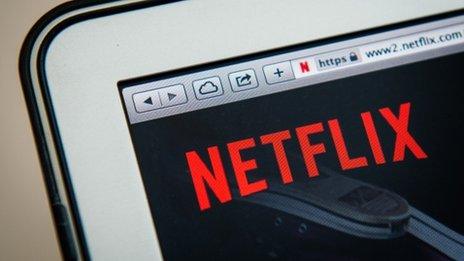
- Published19 November 2014
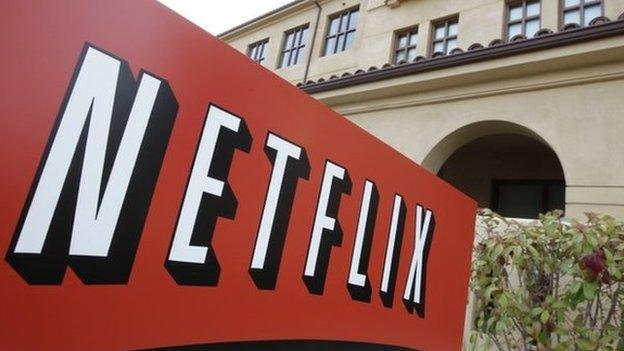
- Published21 January 2015
